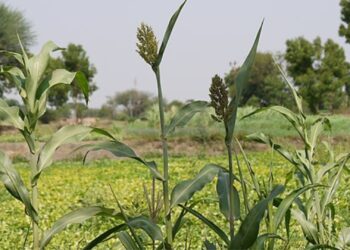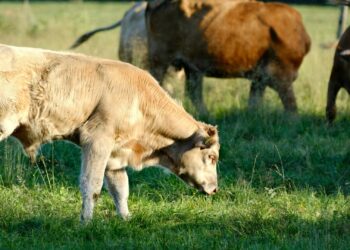Formalising a farming business may seem complicated, but as agricultural economist Dr Siphe Zantsi explains, it is a vital step towards building credibility, attracting investment, and ensuring long-term sustainability.
Beyond compliance, formalisation opens doors to new markets, strengthens partnerships, and protects the farmer’s legacy for future generations.
Zantsi unpacks the importance of choosing the right business structure, the role of legal agreements, and how formalisation enhances market access and financial opportunities for farmers.
Understanding what it means to formalise
“To formalise a farming business means moving from being informal, unregistered operations to an officially recognised entity by registering it through a relevant authority,” Zantsi says.
In simpler terms, formalising means documenting everything about your farming operation: income, expenses, production, and sales. Small-scale farmers may assume they can remember all these details, but as Zantsi explains, proper records help ensure accountability, support applications for funding, and secure the farm’s future.
Why farmers should formalise early
Many farmers delay registration until their operations are large or profitable. However, Zantsi emphasises the importance of starting early. “Ideally, you should do it as soon as possible,” he advises.
Formalising helps when seeking investors, government funding, or even succession planning. “You won’t be farming forever; there will come a certain time in your life where you’ll have to give it to someone else, probably one of your children. Where would they start if there are no records?”
He also notes that record keeping and formal management once existed among black farmers but were lost due to historical suppression. “If we did that from the beginning, some of the information we would still have today.”
Related stories
- How to compile a winning agribusiness plan
- Marketing tips for poultry agribusinesses
- NW farmers urged to register their businesses on database
- Poultry farmers: A guide to selling to abattoirs
How formalisation improves access to finance and opportunities
Formalisation helps farmers qualify for grants, loans, and partnerships. During the Covid-19 relief period, many farmers missed out because they lacked proper records.
“Banks, even the Land Bank, need information to know how you’ve been performing. Having a registered business helps them see your operations clearly,” Zantsi says.
Formalisation also improves decision-making. With accurate records, farmers can plan better for input costs and adapt to market changes. Moreover, a formal business holds greater value if sold. “It’s like a vehicle with a full service history – buyers can see its performance over the years.”

Four key steps to formalising your farm
- Register your business
All businesses, farming included, must be registered through the Companies and Intellectual Property Commission (CIPC). Farmers can choose a unique name, provide ownership details, and pay a small registration fee. - Open a business bank account
Once registered, use the business certificate to open a dedicated account. “Separating your personal and business matters is very important,” Zantsi cautions. Financiers assess the seriousness of a farmer by reviewing bank statements. “Once they see that on your business account you’ve been swiping groceries, they know the account is not strictly for business.” - Register for tax clearance with the South African Revenue Service (Sars)
This process helps build financial transparency. Zantsi reassures farmers that tax does not apply to everyone. “Most small-scale and land reform farmers are exempted for a certain period, until they are established commercial farmers.” Farmers can explore the guide on taxation of farmers by SARS to see what applies to their business. - Create a business stamp and keep records
A business stamp and invoice book help record smaller cash transactions. “Buy a stamp and an invoice book. You can pay your labourers in cash, stamp and record it, and scan it as a soft copy for safekeeping.”
Choosing the right business structure
Farmers can choose from several structures, such as sole proprietorship, partnership, company, or cooperative.
A sole proprietorship suits most small-scale farmers who own and manage their farms independently. In a partnership, farmers can combine resources; for example, one may own land while another provides machinery or capital.
Zantsi advises that all partnerships and shared ventures must be formalised. “There should be a formal agreement, whether it’s an affidavit or through lawyers. In the beginning, everything seems well, but it will not always be like that. It’s good to formalise it and put it in writing in a legally recognised way.”
He adds that formal agreements prevent disputes when one partner passes away or when children inherit the farm, and advises farmers to consult legal experts.
Market access
Formalisation doesn’t just make record keeping easier; it directly affects market access. “If you are in business, the main goal is to make money, and there is trust involved,” Zantsi says.
Retailers, abattoirs, and exporters prefer to work with registered entities. “If you are producing for a retail store, they will want a contract that specifies how much you supply. Very few companies will contract with an informal farm.”
For those aiming to export, documentation requirements are even stricter. “You’ll need police clearance, details of your employees, and payment records. So if a farmer plans to grow their business and export, they definitely need to formalise it.”
Common challenges and how to overcome them
According to Zantsi, the biggest challenge is procrastination. “Farmers often say, ‘I will start when I reach a certain level,’ but they end up staying informal forever.”
He advises starting small and early. “It’s easier to formalise when you have ten cattle than when you have 200.” Learning as your business grows also provides a valuable record of progress – something financiers appreciate.
He adds that financiers consider both collateral and competence. “The biggest collateral, which is not often pronounced, is the skill of the farmer. You can have land and machinery, but can you use these resources to generate profit? If you can show progress and records, it builds confidence for investors and partners.”
Support for farmers formalising their businesses
There is support available for farmers who need guidance. “The Land Bank is a state-owned bank mandated to financially support farmers, especially black farmers or those from historically disadvantaged groups,” Zantsi says.
Land Bank assists farmers with business plans, market access, and monitoring progress. “They take farmers by the hand through every step because they need to ensure that the land and money provided yield results.”
Provincial agriculture departments also provide business support, as well as the Agricultural Research Council (ARC). “At the ARC, we can help farmers who need advice, especially through our economic analysis unit,” Zantsi says.
READ NEXT: La Niña brings flood risk, above-normal summer rain

















